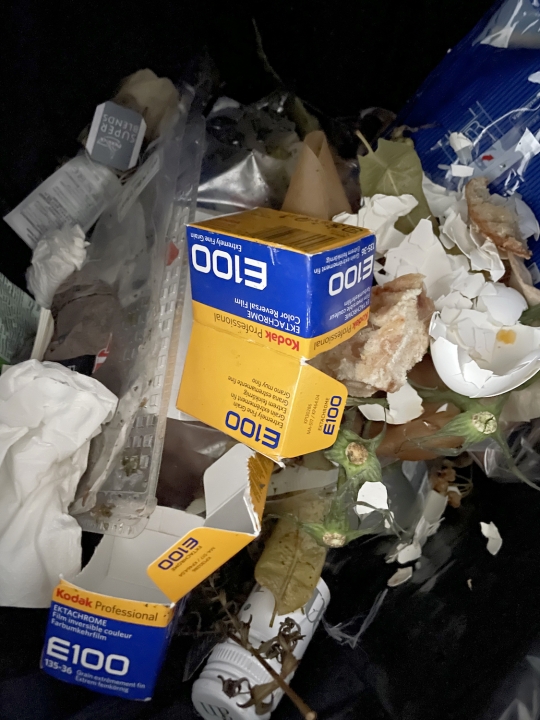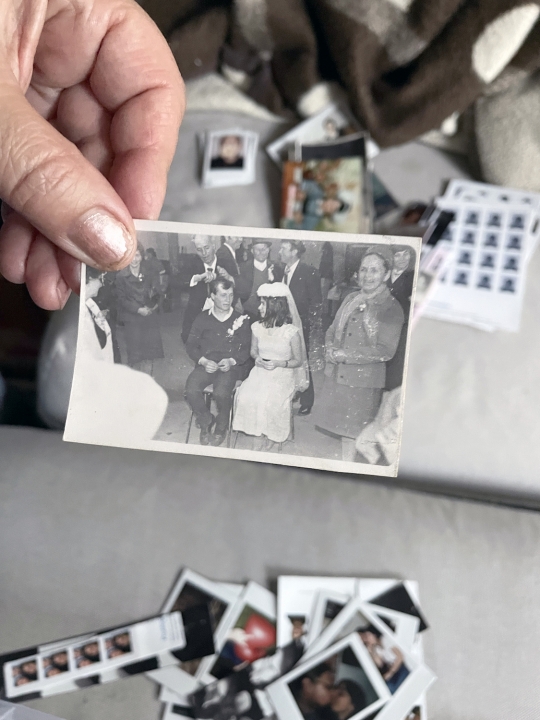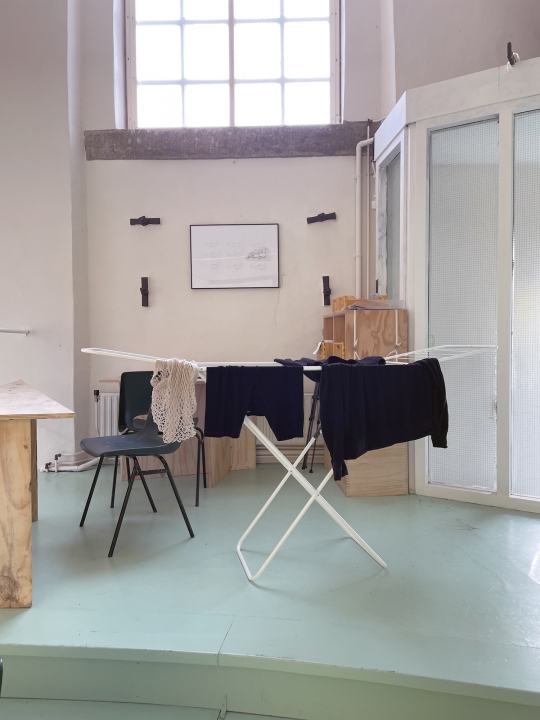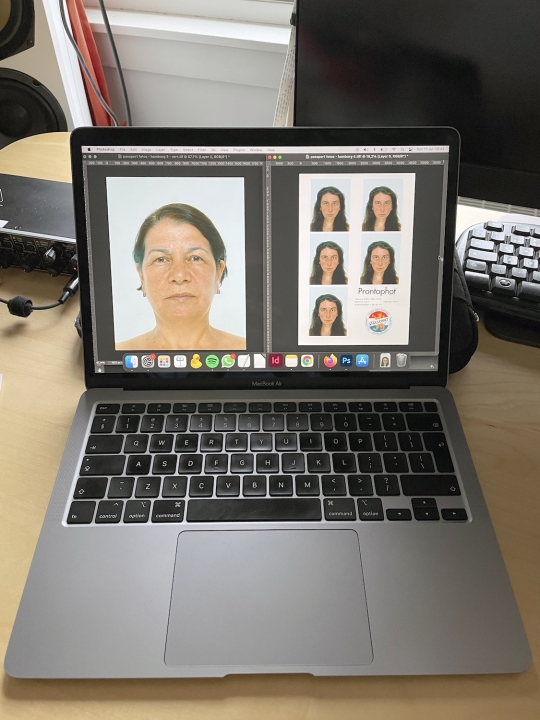
– reflections while before, while in, and while after a residency at Hotel Maria Kapel in Hoorn
“What are the many different pasts of becoming a mother? (…) “Going with child is, as it were, a rough sea on which a big-bellied woman and her infant float the space of nine months: reckoned an observer in 1688. Then “labour, which is the only port, is so full of dangerous rocks, that very often both the one and the other, after they are arrived… have yet need of much help to defend them.”
Mother is a verb, an Unconventional History, by Sarah Knott
It’s July 2021.
My mother, now 60, holds up a picture of herself when she was 23. In it, she’s sitting on a chair. She’s wearing a light-colored dress (I’d hesitate to say it’s white since the picture is not in color). She’s wearing a veil atop her head and on a chair next to her there’s a young gentleman that looks towards her, sideways. He wears a flowered boutonniere, which, this time around, I’m almost certain is in white. The two – my mother and the young man – mirror each other. Their hands are holding something, their legs are close together, under their respective chairs. All around them there’s an atmosphere of celebration. When describing the photo my mother tells me this is a Romanian wedding ceremony akin to catching the bouquet, in which two wedding guests get assigned the bride’s veil and the groom’s boutonniere and are sat together, pushing the tradition further, performing the couple.
When I was a child, either skipping over the explanation or having never received it, or believing in the truth of the photograph over the given narrative, I always thought this was my actual father. But when digging deeper into the story of the image, my mother tells me this happened the day before she met my father. Which, come to think of it, is an even better narrative, since it allows me to believe the image anticipated the future, or even created it, by nudging my mother into her new position.
—
On January 31st, 2020, I shot an email over to inquire about the price and duration of a cross-Atlantic freighter journey. I’ve never truly even been out of Europe, all 34 years of me at the time, but figure that maybe now’s my chance. By March I get my answer back from the cargo tourism company. By March I also find out that my mother isn’t feeling well. I decide to jump on a plane to Romania to visit her. On my way back, still filled with travel plans, ready to set to sea, the funniest thing happens – the world comes to a halt. We collectively get time to think. All a few billion of us.
In between gusts of fresh air, throughout our first quarantine year, an open call for Hotel Maria Kapel in Hoorn happens. The theme: “On Shelter”. I knew, after almost a decade away from my mother, that I wanted us to spend more time together. Thoughts of motherhood also hovered in the air at the time, baby booms and busts. I looked into the eyes of my partner and I realized I wanted to become a mother. I briefly thought of Maggie Nelson in The Argonauts: “Whenever anyone asked me why I wanted to have a baby, I had no answer. But the muteness of the desire stood in inverse proportion to its size.”
Wanting to have a child had happened throughout the 7 years we’ve been together, my partner and me, but maybe more decidedly in the past couple of years after I’d concluded that going at it casually wasn’t going to cut it. Nature did not “run its course”. Though prior to wanting a child I’d always been warned it will. My body was simply saying no. And going about it creatively, by adopting a Romanian kid, was also a lost avenue. In a recent development, after the Netherlands had lived through a long series of botched adoption procedures in the 80’s and 90’s all international adoptions had been shut down at the beginning of 2021.
So I weaved the two – my motherhood and my mother – into a practical plan. The principle of the whole endeavor was pretty straightforward. My application stated: I’d like to spend a month with my mother, in residency, in Hoorn, at Hotel Maria Kapel, and think about motherhood. With the added background info: I’m Romanian, so is my mother. I’ve moved to the Netherlands to become an artist almost a decade ago and haven’t seen my mother since, except in brief spurts of one week every year or so. Also, by the time I’d end up in residency, I’d be 35 – that slight tipping age when both exhibition opportunities and birthing ones slowly come to a halt.
—
Hotel Maria Kapel has been in operation since the 1990s. But, the more time passes, an institution ends up being a little bit like the Ship of Theseus. The one thing that has stayed constant is the space itself.
Knowing a place’s history makes one curious to apply. It’s a bit like the concept of motherhood. But change is constant, so by the time you end up swallowed by the mechanism, from expectations to reality, from cosplaying marriage to living with someone, from imagining what a family would imply to making your own at 23, the mechanisms constantly shift, twist and turn, leaving one with only a faint idea of what they should be expecting along with the reality of practice.
The plan I applied with at HMK, as flimsy as it was, got approved. I became part of a long-term funding scheme when Maria Kapel got structural funding from the Mondriaan Fund in 2020. However, my ship changed planks before I set foot on it. The directorial team of HMK changed at the beginning of 2021, and it also lost its treasurer.
The first rule of improvisation, no matter the circumstances: say “yes and!”.
We were bound to be in residency, my mother and I, in July of 2021. I had exchanged a long-distance trip, for a journey much closer to home.
—
Before I even started my residency my art school classmate had a daughter.
My next-door neighbor got pregnant.
The girl I had a crush on in high school celebrated her daughter’s 12th birthday. A note from her, passed under school benches, in between classes, while I was crying, a note that’s 17 years old, still hidden, folded, on my desk, in my paperclip holder. It says, in caps, in biro “don’t consume yourself so much, it makes no sense”.
And BBC News reported: 25-year-old woman gives birth to nine babies: “Cisse’s husband, Adjudant Kader Arby, still in Mali with the couple’s older daughter, told BBC Afrique he had been in constant touch with his wife and he was not worried about the future.”
—
Motherhood can be a deliberate choice, it’s fuzzy with the contours of longing for a world that is yet to come, and to which one is allowed to consider themselves a co-creator in the rawest sense of the word. Maybe to think that one is making the working world of tomorrow might not be the most romantic thing to consider. And few even consider it when they take having children into account, but biological motherhood, birth, and its associated unremunerated care work is work, and it’s crafting the world of work. It’s even more so when you have to guide the process and supplement it with prescription drugs.
—
On the 23rd of March 2021, while traveling from Tanjung Pelepas in Malaysia to Rotterdam in the Netherlands, the Ever Given – one of the largest cargo ships in the world, and through this voyage, one of the soon to be most notorious – ran aground in the Suez Canal. All 399.94 meters of it got stuck diagonally after losing the ability to steer amid high winds and a dust storm, blocking in its first instance 15 other ships that were trailing behind it. The ship remained in place for six days before salvage crews freed it on the 29th of March 2021. It sparked hope. It sparked memes. For a brief moment in time, we thought capitalism had come to a halt. It might have been just summer. The cargo that the Ever Given carried included, among others: lemons, bamboo shoots, and tofu, goods from Lenovo, Ikea, Dixons Carphone, and dozens of other brands – including barbecues, sun loungers, swimwear, lawnmowers, and camping equipment.
—
Truth be told, before I even started the residency, it became clear that I didn’t know how to have children. The stumbling blocks along the way revealed that to me. But I did however know how to fall in love, so, at the beginning of 2021, I proceeded to do just that, with another man. I’d say I decided, but does one ever decide to fall in love with a gentle 30-year-old boy? It happened in the first weeks of January. He was 29 when I met him. I was 35 then. We shared a train and he let slip his birthday, so I belatedly congratulated him and this birthed an email exchange which reached tens of messages sent back and forth in the same thread entitled “Thank you!”. There was gratitude whenever he wrote back. And expectation when he didn’t. There was the slight suggestion of making a family otherwise.
Our meetings weaved between big and small events in my life – a Hystero Salpingo Grafie, an echo, blood tests, rejections, monthly bleedings. We walked in the East and North of Amsterdam. At a certain point, part tipsy on a small bottle of warm wine, or rather encouraged since I had already decided and told my partner that I would, I told him that I liked him. He reciprocated and added “let’s see where that goes”, then left. I knew he was bound to move to another continent in a few months. That ship would sail. No matter.
—
My mother landed in the country at the end of June. I picked her up at the airport. On her first day in the Netherlands, while taking a shower, I noticed a clump of bloody cells drop to the floor and glide towards the drain. I thought about the gentle 30-year-old boy I fell in love with which made me pull up the price offer for the cross-Atlantic freighter journey from the travel company in one tab and the contract that I had with Hotel Maria Hapel in another. I overlapped the price of the cargo trip with the fee I would receive for my residency in Hoorn and noticed the match.
I considered the option of changing course.
A turn-around,
a change-over,
a change of heart,
a U-turn,
a switch.
—
We tried, throughout July, to settle in some sort of a routine at Hotel Maria Kapel, my mother, and me, but realized sooner than not, that Hoorn displaced us both. She has a limited command of English, I have a limited command of Dutch. The building, and its assorted studio, were noisy as if we’d landed in a giant womb, and throughout the night we heard creeks and sounds of re-arranged insides.
As soon as my mother arrived I started to feel like a container ship placed diagonally in the Suez Canal. I dreaded the thought of “using” our experience as content for a work. I dreaded the thought of lingering on my lack of reproductive ability. I noticed my mother turning into a dependant, attaching herself to me like a child.
While sharing a space we used a handy tool to communicate our needs to the residency organizers, a “care rider”, a term coined by Staci Bu-Shea of Casco, working for the commons, which allowed us to list our likes, dislikes, needs and wants in order to make.
The phrase that struck me from my mother’s “care rider” was this: “I have two children, two girls, 30 years old (b. 1990) and 36 years old (b. 1985). I needed to be a reliable person in the family, so I tend to engage in low-risk activities. I am in search of stability.”
The phrasing seems to me at odds with how I viewed my mother and her courage, her willingness to stay afloat in life’s waters. Motherhood as viewed from the outside ended up communicating itself in a puzzling way. There was little time to truly think about it though. I noticed the institution cornering me and wanting to understand just what “I’d make” out of my experience.
Little did I know, residencies still dream of a production. Residencies don’t fully know how to deal with open-ended approaches, even while being structurally open-ended.
—
In ‘Production and Reproduction’, an article in the Aug/Sept number of Metropolis M, Sanne Fleur Sinnige takes a jab at figuring out why pregnancy is not more visible or valued within art. She concludes that it has a lot to do with the fact that production in the typical sense is put on hold during pregnancy. I’d venture further in saying that the more or less certainty of pregnancy itself is viewed as production. Within a Neoliberal system predicated on precise results, on projects which lead to a definite “product” which can be displayed, or posted on social media, or turned into a publication, pure process, a process which has its hits and misses – a pregnancy (or not), a relationship (or not), a love affair (or not), a tighter bond with one’s parent (or not), an exhibition (or not) – is directly considered anathema.
As the threads of distance, life, love, and making twisted together around me, binding me to them, I was briefly reminded that failure is always an option. The result is always what happens while one tries. Whether that can be accurately framed for the consuming public shouldn’t matter.
—
I played the promotional video of the freighter travel company I asked a quote from, and hung on a couple of lines: “We want to know how wide the world really is. We want to know how much (“Atlantic”) lies between the continents. Perhaps it isn’t the distance, but more the time which helps us feel the greatness of the Earth and the climate.”
—
My residency didn’t truly end at the end of July. My mother left, I left, but there was an agreement in place. I got time until the end of the year to continue “working” remotely.
It was after my mother left that I went back to thinking about becoming a mother. I got a call for my first fertility treatment in August. I waited in line. I got a prescription. I got an order number. I heard myself be pinged forward. A robotic arm was called to attention and pulled from the back shelves, in plain sight, 50mg of Clomifeencitraat and 250 micrograms Ovitrelle that ended up wrapped, along with indications, and handed over to me alongside the thought of planning one’s calendar, of controlling the process, of pushing it along. Motherhood ended up tinted with the romanticism of automation, somehow tied to the comings and goings of the port of Rotterdam, though I began to understand that motherhood, in order to take root, required me to stay still, encased as in a picture, to keep safe and to observe the process.
Alina Lupu is a Romanian-born and bred, Dutch-based post-conceptual artist and writer. The focus of her practice is on working to improve precarious conditions for art workers and laborers in general. During the month of July 2021, Alina was in residency alongside her mother, Valy, at Hotel Maria Kapel in Hoorn, where they reflected together on the meaning of producing one another.


